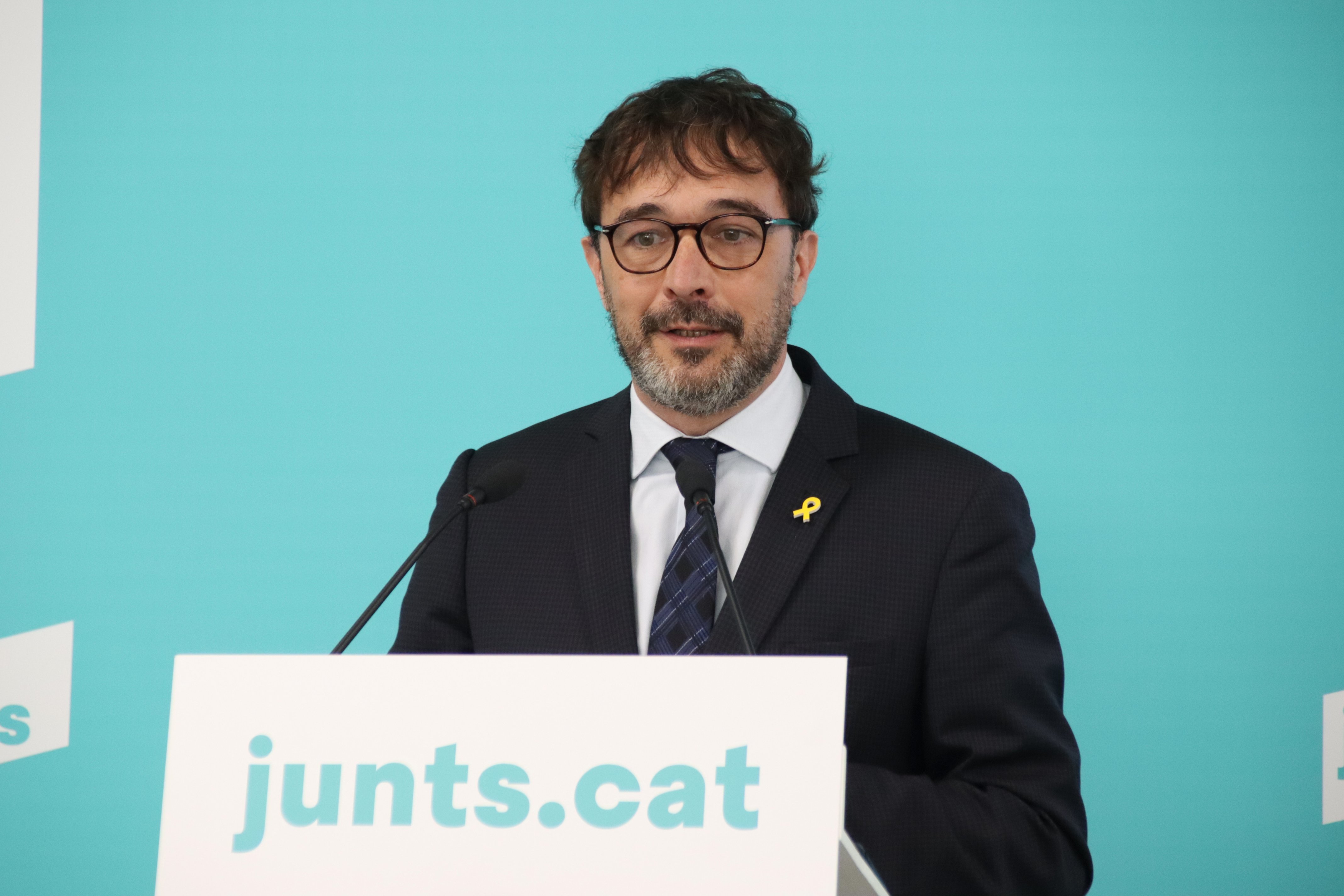Will the reform of Catalonia's Language Policy Act - as controversially agreed by the PSC, ERC, the Comuns and Junts - go ahead? The answer is that it probably will, because the political support is there. But another matter will be the breadth of the consensus it achieves, after Junts stepped away from the accord and asked to open a dialogue with the associations and platforms in the sector. Today, the party's spokesperson, Josep Rius, warned that they will not back this reform if this consensus is not achieved: "We will only support the reform of the Language Policy Act if there is the political and social consensus it requires."
This was stated by the spokesperson at a press conference, where he noted that, due to the storm raised by the reform's legal recognition for the first time of Spanish as a teaching language in schools, the party had asked for more time to improve the text and achieve a broad consensus. It is expected to be debated and approved in Parliament at the end of April: "Junts has called to slow down the progress of the law reform in order to improve it, and now the other parties have come round to this position." Rius claimed that Junts "is a party that guarantees that the reform of the law must serve to strengthen the language immersion system."
But what does consensus mean, and how is it measured? Rius did not answer this question clearly, but he did say that they are looking to extend this consensus to the "maximum": "We slowed down the agreement, we made a self-criticism because we recognized that the text could be improved," Rius said. These statements come following last week's demand by around sixty entities grouped under the umbrella of Somescola for a space of honest dialogue with politicians and the government to address any reforms that affect the immersion system. Thus, the situation is that on the one hand, Junts has been the party that has shown the highest profile in asking to address this with the social agents, while on the other, the PSC, ERC and the Comuns have all stressed that the reform has a broad political consensus and that it guarantees the use of both languages, Catalan and Spanish, and despite saying they are open to improvement, they claim that in general their proposal is good.
Junts congress in two phases
Beyond the Catalan language question, another matter generating interest these days in Junts circles is the renewal of the party leadership, which will bring to a close Jordi Sànchez's term as general secretary. According to Rius, the congress will in the end take place in two parts. The first, in June, in Northern Catalonia to choose the executive leadership, and the second in July to approve the political and organizational recommendations: "The aim of the congress is for Junts to become a mainstay of independentism, a party that has not abandoned the mandate of the 1st October referendum and is able to govern Catalonia with solvency ", he affirmed.
Dialogue table
Thus, part of the party congress will be held across the Pyrenees in Northern Catalonia, with the aim of denouncing the anomaly of a situation, in 21st century Europe, that are politicians in exile because they held a referendum, and of denouncing that the Spanish government refuses to resolve the conflict: "The PSOE has no proposal for Catalonia," said Rius, and once again the party was heavily critical of the dialogue table agreed over two years ago by the ERC party and the current Spanish government: "What we see is that it is a table of silence and one which silences others, it has no agenda", and he explained that they are making an evaluation of the ERC-Junts government pact and will make a thorough assessment of the dialogue table.

